#Cambridge academic success
Explore tagged Tumblr posts
Text
Cambridge Exam Tutoring: Achieve Success with Expert Help
Cambridge exams tutoring are a gateway to academic and career success, recognized worldwide for their rigor and prestige. Whether you’re preparing for the Cambridge IGCSE, A-Levels, or the Cambridge English Language exams like the CAE or IELTS, having the right guidance is essential. This is where Cambridge exam tutoring comes into play. In this article, we’ll explore the benefits of tutoring,…
#academic tutoring Cambridge#advanced Cambridge tutoring#affordable Cambridge tutoring#best Cambridge tutors#CAE tutoring#Cambridge A-Level tutor#Cambridge academic success#Cambridge education support#Cambridge English tutor#Cambridge exam coaching#Cambridge exam help#Cambridge exam preparation#Cambridge exam strategies#Cambridge exam tutoring#Cambridge IGCSE tutor#Cambridge learning resources#Cambridge mock exams#Cambridge online courses#Cambridge past papers#Cambridge revision tips#Cambridge study plan#Cambridge subject tutoring#Cambridge test preparation#Cambridge tutor#Cambridge tutoring benefits#Cambridge tutoring services#Cambridge-certified teacher#Cambridge-certified tutor#effective Cambridge tutoring#English proficiency tutoring
0 notes
Text
Cambridge Exam Tutoring: Achieve Success with Expert Help
Cambridge exams tutoring are a gateway to academic and career success, recognized worldwide for their rigor and prestige. Whether you’re preparing for the Cambridge IGCSE, A-Levels, or the Cambridge English Language exams like the CAE or IELTS, having the right guidance is essential. This is where Cambridge exam tutoring comes into play. In this article, we’ll explore the benefits of tutoring,…
#academic tutoring Cambridge#advanced Cambridge tutoring#affordable Cambridge tutoring#best Cambridge tutors#CAE tutoring#Cambridge A-Level tutor#Cambridge academic success#Cambridge education support#Cambridge English tutor#Cambridge exam coaching#Cambridge exam help#Cambridge exam preparation#Cambridge exam strategies#Cambridge exam tutoring#Cambridge IGCSE tutor#Cambridge learning resources#Cambridge mock exams#Cambridge online courses#Cambridge past papers#Cambridge revision tips#Cambridge study plan#Cambridge subject tutoring#Cambridge test preparation#Cambridge tutor#Cambridge tutoring benefits#Cambridge tutoring services#Cambridge-certified teacher#Cambridge-certified tutor#effective Cambridge tutoring#English proficiency tutoring
0 notes
Text
instagram
The Winter Morning Struggle
#TeacherStruggles
#TeacherLife
#funny#funny memes#funny stuff#funny post#funny shit#funny videos#icse schools#school#high school#student#study#cambridge#igcse#a level biology#online learning#a level maths#study motivation#academic success#education#college#homework#university#tumblr memes#humor#haha#dank memes#meme#lol#silly#teacher love
19 notes
·
View notes
Text
He's A Distraction (Central Cee x Reader)

Summary: You're a dedicated student and going to Cambridge and become a doctor is your stars and heavens. To make that happen you have to move schools, a boy was never meant to be part of the picture. But Cench looks so good in it...
Word Count: 2 472
Notes: Sorry this is a bit long, I would love if you guys would send requests.
You scroll fixatedly on your laptop, scanning the screen in intense concentration and stopping each time something caught your attention. Reading the Cambridge Medicine webpage was an addiction; in the past you had tried to dissuade yourself from accepting this, but how could you not when it always stared blankly back at you? Addictive but productive, each time you re-read the sentences you had engraved into your memory you grew closer to your dream. And when you closed your eyes at night, you saw yourself in lavender scrubs and a pearly white lab coat; living your dream of being a Cambridge Alumni doctor.
Three A*s needed for entry motivated you to be an excellent student. You didn't mean to behave exaltedly but your current school was inadequate in innumerable ways. Today in biology, there hadn't been enough dissection kits, so the class had taken notes robotically and brushed over the practical. Defeated, you remembered how you had trudged home dubious; how could a school implore success in its students and not have the right resources? A memory of sitting in an examination room at Queen Victoria's Sixth Form Academy unnerved you, yes, you had sat the scholarship examination. It had been strenuous and the competition in the room had been palpable, even so, you didn't feel as if you could compete successfully. Falling asleep, you were plagued by these worrisome thoughts even in your dreams.
Obnoxiously the sound of your alarm erupted immersing the room and awakening you. Each morning when you woke up, a void would open gaping at you, existing ostentatiously: It was a persisting sense of loneliness at first; an innocuous reminder to cherish time with your parents. But this was difficult when they both left for work as the sun just began to emerge teasingly over the horizon. Your mother worked as a university professor, such a nominal salary for an intelligent woman, and your dad worked as a nurse; anyone could tell you nurses were underappreciated, numbers didn't have to. A smart knock was being emitted from the hallway, who was at the door?
A postman adorned in fluorescents held a letter for you to take, when you hesitated a second too delayed, he dropped it, walking swiftly to his flagged motorbike and zooming down the road. A Queen Victoria's Academy insignia? You felt so inauspicious as you leaned on the door prying the seal delicately open. Covering your face with your hand you peaked at the verdict through the intricate gaps between your fingers. "We would like to congratulate your success on the recent Academic Scholarship examination and invite you to accept a scholarship place with us." No words can grasp your joy it's transcending.
Yawning tiredly, you stretched placing your feet into your fluffy slippers, the night had gone and went without a wink of reprieve - you were consumed with nerves for the day ahead: Your first day at Queen Victoria's Sixth Form Academy. Opening the door, you walked across the creaking timber to make breakfast alone as you did every morning. You were befuddled to see your mother occupied in the kitchen handling an assortment of kitchenware ,readying a breakfast spread; usually you would just eat cereal; before you were pancakes, fresh fruit niftily cut, orange juice and array of salivating dishes.
"Mum why are you not at work?"
"I wanted to drive you for your first day, I can't begin to express how proud dad and I are," she said beaming excitedly.
You sat at the kitchen visualizing your mother's small, slightly dated and mediocre car driving alongside the avant-garde and luxurious cars of your new peers. Your stomach knotted half ominously and half guiltily. She seemed so happy to drive you and had sacrificed work to drive you, your inner monologue whispered insisting to take the bus would leave your mother forlorn.
"I'm glad you're taking me; I didn't really want to take the bus on my first day anyways."
Lies.
The academy's tree-lined boulevard was now in sight, driving alongside it now; planting your face against the misty window, eager to catch a glimpse. Your mother's car was now aligned with the curb which signaled a convenient space to leave; grudgingly you opened the door slowly as if peeking into a foreign world - in a way you were. You breathed in a long breath of courage as you slung your bag across your shoulders.
"Bye mum, thanks for the ride," you said, genuinely grateful.
"My pleasure darling, I love you, see you after school." Your mother grinned, pride cascading her face and carved smile lines. Guilt ebbed slowly as you watched your mother drive away. As her car dissipated to a speck in the distance a humble maroon car pulled to the curb, your mother had dropped you off with a car of a similar stature. You felt an unspoken sense of camaraderie. I'm glad I have someone to share the embarrassment with.
A boy emerged who appeared to be in the upper-sixth form - your year. He didn't seem ashamed of his car or even the slightest bit alienated; instead, he was confident, you could read if from his aura: it preceded him. Staring now, you saw his dark hair which was styled into jaw length box braids. His cutting cheek bones were iridescent, catching the sunlight, and you marveled at the softness of his plum bottom lip...
"I love you mum, thanks for the ride," he spoke to his mother with a genuine smile.
"I couldn't say no after you begged for a ride, could I? Have a good first day, Oakley."
What! He had asked for a ride. The guilt came gushing back, you weren't like him, yes you could relate about your car which was vain and face level. But he appreciated his mother wholly and wasn't attempting a façade to fit in with the elitism around. You felt a searing pang of shame. Frozen in thought you only broke out of this state when you felt dark coffee eyes meeting your gaze. The dwindling blare of the lesson bell dismissed you from the intense, awkward situation. Walking towards the office to meet the enrollment officer you chastised yourself sternly: This was the year of academic success entailing A*s, boys could tear down everything you had worked so hard for in a painful heartbeat.
The enrollment officer had distributed timetables to the small group of scholarship students; some of them gave a condescending air: Almost as if the fact testing had terminated slipped their minds, but most were nice and proffered kind but shy smiles, clipped at the edges with perceptible nerves. You navigated the halls wearily searching for your chemistry lab, the school was grandiose but tastefully understated. The look of old money attracted your gaze, it was a world away from where you had come. Walking the winding stairs, you see your chemistry class meters away from the landing 'room 299.'
Having arrived ahead of time allowed you to peruse the chemistry lab, it was a spectacle. Advanced modern equipment, granite bench tops, the most powerful microscopes... It left you speechless. You were broken from your trance by your classmates trickling in slowly and the booming voice of your new chemistry teacher.
"I am Dr. Olsen, I have a doctorate of chemistry from Oxford itself, trust you are in more than good hands," he paused to chuckle at his own joke but carried on when the students unreciprocated his mirth.
"This is the only chemistry class in the upper sixth form, that should allude to the arduous nature of the course. Therefore, to maximise your concentration I have taken it upon myself to devise a seating plan."
Dr. Olsen trailed off when the class began to groan resentfully.
"You can thank me when you receive your A-level results at the end of sixth form. Right then, in the back row, Y/N and Oakley Caesar-Su, Veronica Windward and Yasser Malik ..."
Oakley, You had been seated next to the boy from earlier this morning. You knew you shouldn't be smiling to yourself, chemistry was an imperative A-level. You weaved yourself to the back row and sat next to him.
"Hi Oakley," your voice had manifested much more timidly than you had expected.
" Yeah hey y/n, call me Cench, only my mum and tired old teachers like this one call me Oakley."
You giggled unexpectedly, he grinned back his gaze lingering. As Dr. Olsen droned on about Titration you took down notes studiously, beside you Cench was doing the same; writing down notes swiftly. You couldn't help but notice his handwriting was neat and prettily round, looking at his notes you dropped your pen. From your stool you reached down to retrieve it, on the way back up you bumped heads with Cench who had thoughtfully wanted to help.
"Oh my days, I'm sorry y/n, you good?" He was asking searching your eyes for signs of hurt.
You went to assure him you were okay when you got cut off by no other than Dr. Olsen...
"You two in the back Oakley and y/n quiet please."
"I am sorry Dr. Olsen I was just _"
"I don't want a justification take notes like everyone else, or get out," he said belittlingly.
Your cheeks got hotter as the class snapped their necks rubbernecking to witness your embarrassment, you looked at your notes mortified.
"Look, Dr. Olsen, You don't have to chat to her that way, she bumped her head and I was seeing if she was okay, yeah." Cench's jaw was locked making his cheek bones even more enunciated.
" Don't talk back Mr. Caesar-Su, detention after school." With an angered demeanor he resumed his lesson. You fought away guilt as you continued taking notes, if only I had gripped my pen tighter.
Trailing the halls advancing towards the exit, you're clouded with gratitude tinged with empathy for Cench, you hadn't meant to get him in trouble. Nor had you meant to tarnish his reputation in front of the strictest teacher. In your periphery you see Cench and your heart soars.
"Hi, Cench, I'm so sorry about earlier, I didn't think you'd get in trouble for trying to help."
"Don't worry about it y/n, that prick shouldn't have -"
"Right, students before we go into the room, these are the rules of after-school detention..." A teacher drawled these words with an expression of boredom.
You gave Cench an apologetic look over your shoulder before you opened the door, you were met by a smile and a shrug of the shoulders from Cench. The whole way home your mind is scattered with intrusive thoughts of him, you don't want them there but you don't want to fight them away either.
Cench's POV:
Detention dragged on just as I thought, thoughts of y/n appeased this listlessness because thinking of her had made it bearable. As we had worked on our assignments in silence I had chosen to continue my English literature essay. I could say I had not made much progress because the silence which filled the room was unsettling, but really it was because it was y/n who occupied my mind. Y/n with her guileless smile, her sharp and dazzling intellect, the clocked tick some more and I spent the time like this: Thinking up an interminable list of why I like y/n. Really and truly I had only met her today, but something about her...
Wrapping a towel around my waist and drying my wet braids, I hear a ping from my phone. 'You have received an email from..." It's a notification from the enrollments officer. Is this about today, I know I went overboard but I wasn't gonna let that prick talk to y/n like that.
I check what she has to say and she's saying I have to pick an extra-curricular to fulfil my scholarship expectations. That's calm, I'll join the Charitable Cause Club, I heard y/n is in it.
Y/N's POV:
At your desk you're riddled with inconsolable worry. In two days will be the chemistry exam which will make thirty percent of your semester grade. Staring at the notes in front of you which feel insurmountable you begin studying. It is well after midnight when you finally turn off your lamp and resign to sleep.
Cench's POV:
Standing around the classroom I see y/n, her eyebrows are nearly touching in what looks like worry while she reads her chemistry notes. I never thought she would panic during exam season, I think she's the smartest in our whole class. Watching her worry like eats away at me I really don't like it.
Lying awake on top of my covers despite the cold. My mind turns to y/n for the infinite time and I stop randomly at the Starbucks order she has in the morning sometimes. A regular matcha latte with two pumps of vanilla syrup and a strawberry icing doughnut embedded with fresh pieces of strawberry. Trust man's not simping... it's deeper than that.
Y/N's POV:
At 7am on a Friday morning, the library is empty. The comforting silence interrupted sporadically by the tinkering of the librarian. Today, is the day of the chemistry exam and no matter how much you study you don't feel ready for the exam. You feel warmth on your head, the feeling of someone watching you so you glance up straight into coffee eyes. It's Cench leaning on a bookcase your favourite Starbucks order in hand. Your heart skips several beats.
"Hi y/n, your such a neek you know, studying at this time." Cench says this as his eyes flick across your face, enthralled.
"I don't know, you can never be prepared enough," you retort, trying to fight a smile from showing on your lips but failing.
"I don't know about that, you'll do great, your as smart as you are cute. Which makes you very smart."
You feel your cheeks getting hotter and you stare blankly at your notebook.
Never taking his eyes off you Cench puts the drink and a paper bag down on the table.
"I got you a little something, good luck, yeah."
You watch him as he walks away, with his bag slung over one shoulder. Suddenly you are filled with the confidence he has in you.
Taking a few sips of your matcha leaves you refreshed, reaching into the paper bag your heart squeezes when you see a strawberry covered doughnut. How did he know. Looking inside the bag for napkins you see a strip of paper, unfolding the paper you read the message.
It says: You should go out with man. Scrolled on the bottom is a phone number.
You gasp earning a reprimanding look from the librarian. Your mind wanders visualising what your date with him will be like.
...
THE END
#one shot#x reader#central cee#cench#romance#fluffy#classical piano#fanfic#fanfiction#y/n#imagine#uk#ukrapper#central cee x reader#central x you#central cee fan fic#writer
689 notes
·
View notes
Note
what do you think fry's family is like!!! i love him sooo much every time you draw him it's like a gift 🥺🥺🥺
WAUGHGHGHJ these Fry questions make me so happy since he's my Blorbo(TM) <3 Gah I'm itching to talk about him, so ask and you shall deserve!! Also thank you SO much I'm so glad you love my art <33

little sketches related to what I'm about to yap about. ANYWAYS here's wonderwall
So on my old account I used to hc he is Indian-British, whose family hails from Travancore (Kerala nowadays). This was based on what I ASSUMED was canon info since back in January, all Chicken Run wiki articles about him mentioned he's Indian-British. But apparently that's not 100% settled info what his ethnicity is?? And the wikis have been edited since. His VA Nick Mohammed is from a mixed Cypriot/Indo-Trinidadian family though and I spent time reading about Indian-British immigrant history to get Fry's characterization accurate, so imma keep with that hc.
Anyway! I headcanon Marcus is the only child of wealthy businessmen that owned a highly successful trade company. His Vaishya grandparents moved to Britain during the late Victorian era; after all one of the only ways a PoC family could make it back then in Britain was by being filthy rich, and very early on the Fry family had been forced to adopt a "British" way of living in order to be taken seriously by the shitass imperial society. Such as switching to a British surname and avoiding to display too much of their original culture in public. A colonial trauma that still prevails, since Fry's parents christened him with a heavily English name.
I REEEALLY wanna give a try to designing Fry's parents sometime!! But I imagine his parents as sort of a healthier parallel to Melisha's parents; his father is a pristine and calm gentleman with a soothing voice and a love for theatre and literature (a trait that Marcus inherited LMAO) while his mother is more stern, headstrong and very, VERY proud of her status. (but she also has a infectuous smile and laughter and has a bombastic overdramatic streak...something that Fry inherited as well)
They're both native Malayam speakers, and while their family in public strives to keep Keralite culture hidden, they made sure to teach Marcus to speak his native language fluently as well, along with Hindi, Bengali, Tegulu and Tamil. Along with that, they frequently go on family trips to Travancore and enjoy things like inji neer, Kathakali performances (which inspired Fry on his love for theatre <3) and Carnatic music.
Both parents pushed Marcus to study hard and gain multiple academic degrees - it was all out of love and concern, because they wanted Marcus to be able to survive in the cruel world out there without only relying on his money. (Once again, a PoC immigrant family experience that I can identify with as well... even if society nowadays is not nearly as racist as it was back then, unfortunately PoC people are often forced to study waaaay harder than white people in order to make it.) Because they had lived through the years of great depression in the 1930s, and while they managed to survive with most of their wealth intact, they knew that one should not rely only on money for support since anything could happen.
Fry, as a child, was a gifted A+ grade student and a very well-behaved, so his parents called him a little ray of sunshine and a future hope. He yearned to be perfect so his parents would never be disappointed in him. Something that later on contributed MASSIVELY to Fry's gifted child burnout, and how he adopted a sinister, sadistic fascination with mind control and manipulation during his Cambridge years.
Once Marcus came out as trans and genderfluid to his parents, his father was very patient and accepting, but his mother spent several years in denial before finally accepting him. Not directly out of transphobia - but because she was afraid that Marcus would be discriminated, attacked and hurt by people, and that he should focus first on building a career for himself instead of bringing a bad name to the Fry family like this, with an outrageous gender identity. But she soon realized that hiding himself would only hurt her child on the long run. Also - the way Fry managed to fully bribe (cough mind control cough) British officials to switch the gender in his personal info and passport was nothing less than impressive to both of his parents LMFAOOOO and they're very proud
However despite all of this, Fry retains a loving relationship to his parents!! He goes to their mansion every Christmas, and they're also VERY accepting and encouraging to his marriage to Melisha. In fact, his mom was relieved to see Fry had married a very orderly, stern and no-nonsense woman, because Marcus had always been a scatterbrained mess and a reckless money-spender. He made a wonderful scientist, but business-running had never been his thing, so Melisha taking care of all that is like a lottery win to the Fry parents. ESPECIALLY since Melisha came from a poor household - a woman like this, who knows what it's like to live at the rock bottom, surely knows to keep Marcus humble and not let him make flimsy business decisions!! (either way Melisha is still a bit intimidated by Fry's mom, which says a lot considering what kind of a girl Melisha herself is LMFAO)
Pluuuus... the Harsh Expectations(TM) is something that Melisha can relate to </3 It's something that catches her entirely off guard, when she learns this detail about Fry's past. After all, the silly goofy doctor is like an endless ray of sunshine, he's rich and successful. (and we all know what Melisha's mother told her about money bringing happiness...) How could he ever have any worries or feelings of inferiority??
It's a detail that makes (in my hcs) Melisha fall even deeper in love with Fry and become tenfold more protective over him :''') <3 Once she realizes what a horrific burden this goofball is carrying on his back, and yet he still finds the energy every day to stay positive, be optimistic and support Melisha during her hard days.
44 notes
·
View notes
Text
George Windsor, Earl of St Andrews
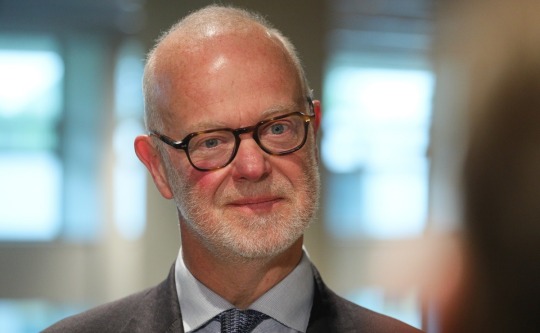
Physique: Average Build Height: 6' 2"
George Philip Nicholas Windsor, Earl of St Andrews (born 26 June 1962) is an English philanthropist, former diplomat and relative of the British royal family. He is the elder son of Prince Edward, Duke of Kent, and his wife Katharine, Duchess of Kent, and heir-apparent to the dukedom of Kent. He is 42nd in the line of succession to the British throne. Charles III is one of his second cousins through the King's mother, Elizabeth II, having been a first cousin of his father. He is the trustee of the Next Century and Global eHealth foundations and patron of the Welsh Sinfonia.
Personally I think he is fantastically cute in a nerdy hot way and it looks like he'll hold on to that attractiveness longer than his father at his age.
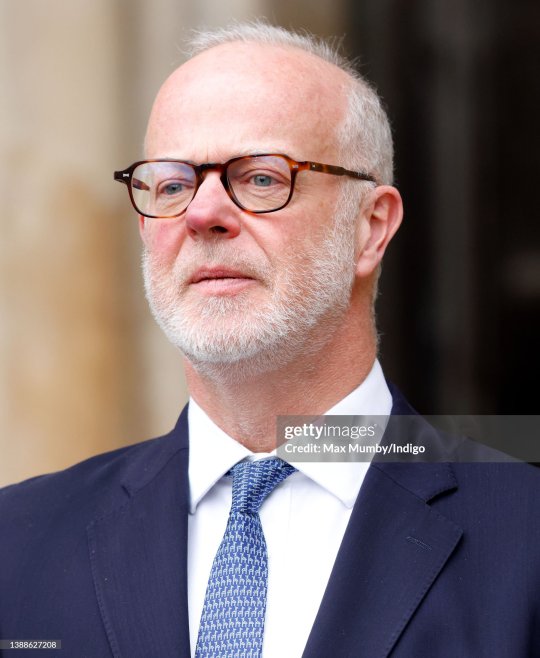
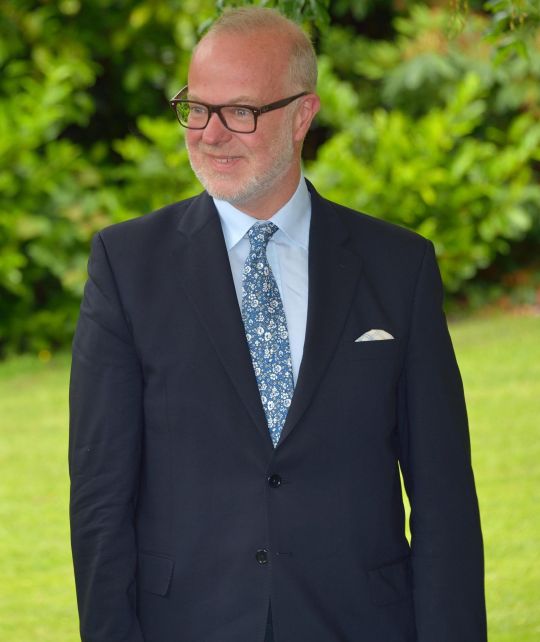
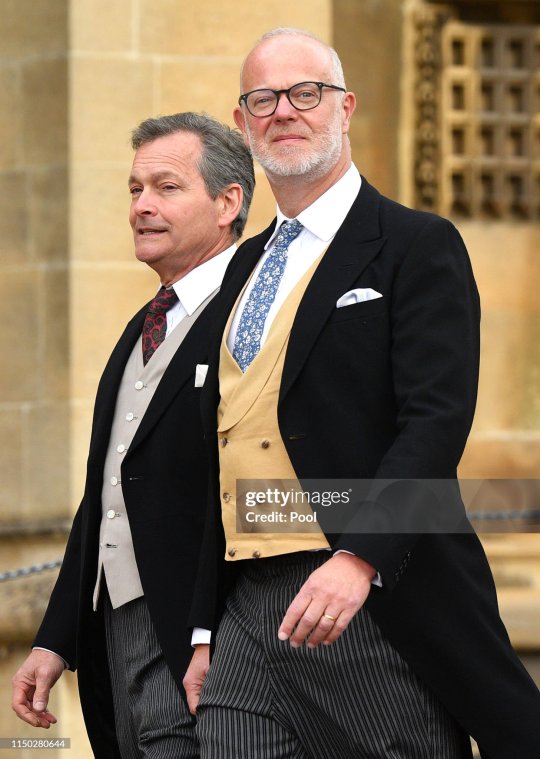
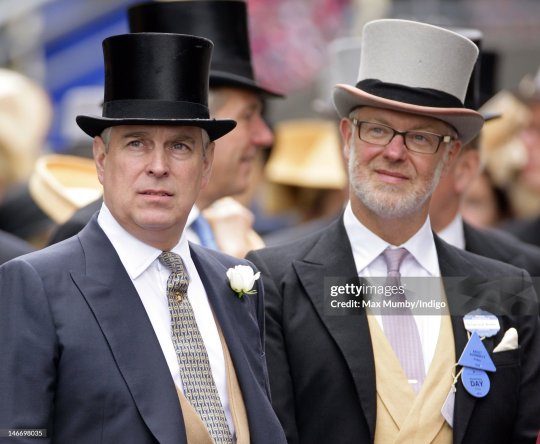

Lord St Andrews was educated at Eton College and Downing College, Cambridge, where he earned an MA degree in History. St Andrews served in the Diplomatic Service in New York and Budapest. He later worked in the antiquarian book business for Christie's auction house. On 30 March 2017, he was installed as chancellor of the University of Bolton.
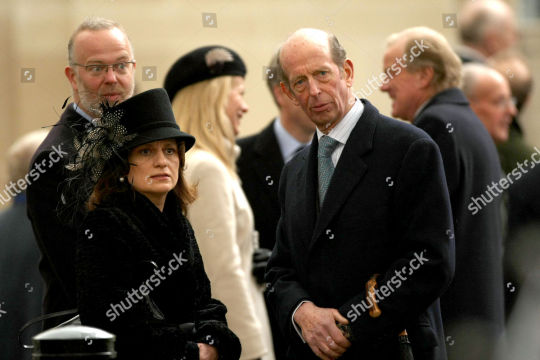
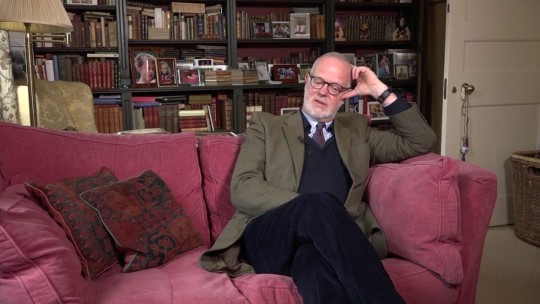
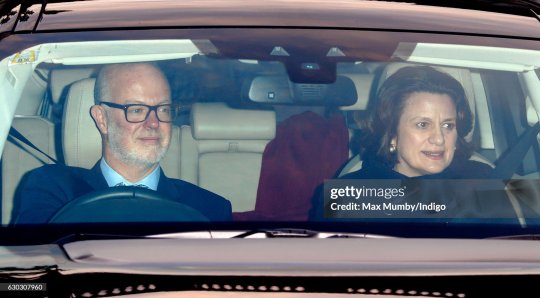
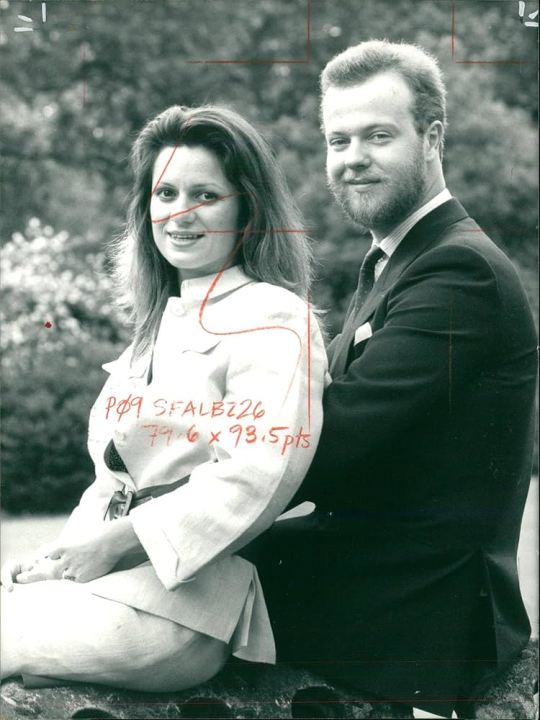
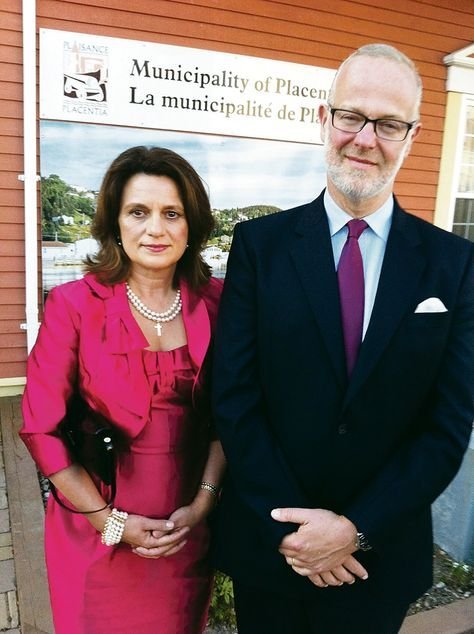
George Windsor married Sylvana Tomaselli, a Canadian-born academic, and together the couple have three children.
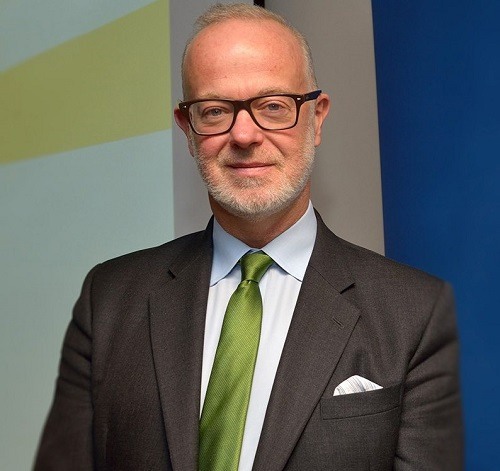
21 notes
·
View notes
Text
It has often been dismissed as utopian thinking, a pie-in-the-sky idea that wouldn’t survive contact with reality. But the four-day week has once again quietened critics, as the results of the world’s trial suggest that it’s a win-win for employees and their bosses.
Workers who adopted a shorter week with no loss of pay were found to be happier, more productive, took fewer sick days and generated more revenue for their employers, a landmark study has found.
The Study
Led by researchers at the University of Cambridge, England, the study assessed the impact of a pioneering four-day week trial, which took place in the UK between June and December 2022. Of the 61 firms that took part – among them online retailers, financial service providers and restaurants – 56 pledged to make the move permanent. [Note: That's 91% of the firms!!]
The Results
Researchers found that 71% of participants reported lower levels of burnout, with 39% saying they were less stressed than before the trial. What’s more, 60% found that they were better able to combine paid work with care responsibilities, while 62% said it was easier to combine work with their social lives.
Unsurprisingly, this translated into a 65% reduction in sick days, and a 57% drop in the number of staff leaving compared with the same six-month period the previous year.
Concerns that switching workers to a four-day week would impact profits did not materialise. In fact, when compared to a similar period from previous years, organisations reported revenue increases of 35 per cent on average.
Trials have continually proved successful
"We feel really encouraged by the results, which showed the many ways companies were turning the four-day week from a dream into a realistic policy, with multiple benefits,” said Dr David Frayne, research associate at University of Cambridge. “We think there is a lot here that ought to motivate other companies and industries to give it a try.”
The trial involved two months of preparation, with workshops, coaching, mentoring and peer support for participants. Resisting the idea that the trial must be ‘one-size-fits-all’, each firm designed a policy tailored to its particular needs.
Some academics have questioned the merits of a four-day week, arguing that it can create more stress for employees because they have the same amount of work to do in fewer hours.
Nevertheless, with trials taking place around the world, often with positive results, the shorter working week appears finally to be going mainstream.
Of the UK trial, Joe Ryle, director of the 4 Day Week Campaign, said: “This is a major breakthrough moment for the movement towards a four-day working week. Across a wide variety of different sectors of the economy, these incredible results show that the four-day week with no loss of pay really works.
“Surely the time has now come to begin rolling it out across the country.”
-via Positive News, 2/21/23
#four day work week#antiwork#anti work#psychology#business#workers rights#labor#capitalism#good news#hope#accessibility#workplace#work life#work life balance
340 notes
·
View notes
Text
“‘Private education is not fair. Those who provide it know it. Those who pay for it know it. Those who have to sacrifice in order to purchase it know it. And those who receive it know it, or should. And if their education ends without it dawning on them, then that education has been wasted.” - Alan Bennett.
One year ago almost to the day, Sir Kier Starmer, our new prime minister, promised to end the “snobbery” that surrounds academic vs vocational education. Speaking in Gillingham Kent, he said the ‘class ceiling' needed to be broken and he vowed to fight the existing reality that social background - and by default, economic background - determines a child’s future opportunities.
This pledge was part of his fifth mission statement where he promised to “break down the barriers of opportunity at every stage for every child.” More importantly he emphasised:
“This mission is my core purpose and my personal cause: to fight, at every stage, for every child, the pernicious idea that background equals destiny, that your circumstances, who you are, where you come from, who you know, might shape your life more than your talent, effort and enterprise.
“No, breaking that link, that’s what Labour is for. I have always felt that. It runs deep for me.” (Keir Starmer:05/07/23)
Starmer is absolutely right when he says a child’s socio-economic background determines the opportunities open to them. Money buys privilege. One reason private schools are so popular among better off parents, especially the very rich, is that class sizes are so much smaller than in the state sector, and as is well known, “smaller classes lead to higher quality education”. From early years of prep schooling right through to the elite universities such as Oxford and Cambridge, money buys academic success. It is no accident that 60% of top university student intake is private school educated, while just 25% is from state schools: the rest being overseas students.
But it is not only the quality of education than counts when it comes to future opportunities – social networking also plays a major role. Sending your child to a private school not only increases their chances of academic success, it also builds up “social capital".
This interesting headline says it all:
Getting the job: it's not just who you know, its how you know them" (nature: 23/1022)
If you know them from public school, especially boarding school, then you are recognised as "one of us" and you reap the advantages.
The dominance of the privately educated throughout Britain’s "upper echelons of power" was recognised by the conservative Prime Minister John Major, who was shocked at the difference a private education made to opportunities for success.
Starmer’s ambition to end the disadvantage of being a state educated pupil by raising educational standards in state schools is admirable but it is not enough. In a report into who gets the top jobs published in 2013 the researchers came to this depressing conclusion.
.”Our work discounts the notion that higher education levels the playing field between students of differing socio-economic backgrounds. Beyond academic achievement, our analysis suggests there are other reasons why wealthier and more advantaged students, and particularly those who attend a private school, are significantly more likely to secure a top job." ( Macmillian, Tyler and Vignoles:“Who gets the Top Jobs? The role of family background and networks in recent graduates’ access to high status professions.” ; IOE December 2013)
Nothing has changed since 2013. In 2019 Statistica carried this headline:
“The UK's top jobs are dominated by the privately educated…our report shows, the most influential people across sport, politics, the media, film and TV, are five times as likely to have attended a fee-paying school.” (Statistica: 25/06/19)
And in 2023 we had this report:
“Private school alumni…gain a disproportionate share, relative to their small numbers, of highly influential jobs in British public life and in business. (UCL: Private schools and British Society: 29/11/23)
Given Starmer’s “mission” to break the ‘class ceiling” is at the ‘core’ of his being, then he has gotten off to a very poor start in trying to remedy this gross social inequality. Originally he promised to strip private schools of their charity status.
“Keir Starmer vows to scrap charitable status for private schools” (LBC: 28/11/22)
Less than a year later, like so many of Starmer’s pledges, this plan was abandoned.
According to The Conversation (27/06/22) charitable status for private schools is worth “£3 billion a year”. It is certainly true that Rugby School is “raking in millions a year thanks to London rental property”. (Coventry Live: 06/04/2025). Eton College, Britain’s most famous private school and the provider of 20 British prime ministers, has been described as having:
“…huge investments in securities and property - £568mn at August 2022 – chipping in handy amounts each year, tax-free thanks to its charitable status”. (Financial Times: 29/09/23)
Under Starmer the privilege provided by private education is to continue. Money buys smaller class sizes, better academic attainment and a build up of social capital through networking with others from wealthy families. Hiding behind the bogus claim of charitable status these schools for the privileged save millions of pounds in tax relief while the state sector is starved of sufficient funding. Rather than doing yet another U-turn, Starmer should have been planning to close private schools altogether.
If he is willing to surrender so easily to privilege and wealth on his “core” beliefs then he has no right to be Prime Minister, and his claims that his administration is all about "change" is just hollow rhetoric.
#uk politics#keir starmer#private schools#advantage#social capital#privilege#rich#wealthy#u-turn#surrender#change#status quo
12 notes
·
View notes
Text

John Burnside
Poet, winner of the TS Eliot and Forward prizes and the Whitbread poetry award, memoirist, novelist and academic
Being John Burnside was a remorseless exercise in human resilience. Even after he left behind childhood deprivation and became a professor at an ancient university, there were always demons to be banished, myths to be busted and issues urgently to be addressed for Burnside, who has died aged 69 after a short illness. Writing was his best revenge, the means by which a sense of stability could be imposed on personal turbulence.
It was his abusive, alcoholic father George who taught him how to make a living by telling stories, though the stories his father told were more often than not lies. “No one,” recalled John in A Lie About My Father (2006), the first of three celebrated memoirs, “ever did find out where my father came from. He was really a nobody: a foundling, a throwaway. The lies he told were intended to conceal this fact, and they were so successful that I didn’t know, until after he died, that he’d been left on a doorstep in West Fife in the late spring of 1926, by person or persons unknown.”
John’s debut collection of poetry, The Hoop, appeared in 1988, and few were the following years when there was no new book from him. His poetry, like his prose, often drew on the past and his own experience, such as The Woman Taken in Adultery, from A Normal Skin (1997), and Memories of a Non-existent Childhood, from Still Life with Feeding Snake (2017): “For years I was lost in the details / heart like a flower, / tending towards the light, / the fog of the cursive, / the beauties of mistranslation.”
For his 2011 collection Black Cat Bone, he won the TS Eliot prize and the Forward prize; he was one of only four poets – the others being Ted Hughes, Sean O’Brien and Jason Allen-Paisant – to win both prizes for the same book. In 2000, The Asylum Dance won the Whitbread poetry award. A Lie About My Father was chosen as the Scottish Arts Council’s nonfiction book of the year and the Saltire Society Scottish book of the year.
Last year he was awarded the David Cohen prize for literature in recognition of his entire body of work. Previous winners include VS Naipaul, Muriel Spark, Doris Lessing and Seamus Heaney.
Secrets, passed from father to son, defined John’s youth and obsessed his adulthood. He was born in Dunfermline, but was raised in a prefab in Cowdenbeath. Once a thriving mining community, nicknamed “the Chicago of Fife”, by the time of John’s birth it had lost its raison d’etre and everyone who could escape did.
For the Burnsides the hoped-for nirvana was the new town of Corby, Northamptonshire, which attracted so many unemployed Scots to its steelworks it was known as Little Scotland. By then, however, as John recalled in his memoir, his father had begun to fall apart, physically and mentally; his much-loved mother, Theresa, did her best to keep up appearances, attending mass and reading Mills & Boons by the yard.
For his part, John took to smoking dope and playing “childish pranks” for which he was expelled from school. By 16 he had progressed to LSD, which he found more rewarding than the communion host. “Acid did what the host failed to do,” he wrote. “Acid was the only real sacrament to which I had access … Here I was, the boy who had seriously thought about a vocation. Now, though the source wasn’t quite what I’d expected, I had one.”
Of an autodidactic tendency, he read deeply and widely, claiming he was “a Seneca nut into my 20s”. He attended Cambridge College of Arts and Technology (“for something to do”), thereafter becoming a computer software engineer. He began to publish poetry in the 1980s, and became a full-time writer, moving back to Fife in 1996 after a long period in Surrey.
In 1997 came The Dumb House, the first of John’s eight novels. Fantastical, disturbing, chilling, it is full of startlingly arresting sentences that provoked critics such as Karl Miller to describe the author as an “extraordinarily good writer”. Rereading it recently, I caught echoes of Proust: “For a long time, I refused to speak – or so my Mother told me.”
For John, his formative years in Cowdenbeath and Corby were the ore from which he sought to extract diamonds. In Living Nowhere (2003), for example, he returned to the Corby of the 70s, where the hope of a better future for its transplanted inhabitants and their offspring is dashed by violence that hangs over the town like the ash and stench from the steelworks.
His taste was catholic, his enthusiasms boundless and his curiosity infectious. In his third memoir, I Put a Spell on You (2014), he describes incidents from his life and muses on popular music, classical literature, old and foreign movies, Diane Arbus and Mel Lyman, the American folk musician and film-maker who provided a link between Woody Guthrie, Bob Dylan and Andy Warhol.
The book’s title is taken from the much-covered song written by Screamin’ Jay Hawkins, another maker of his own myths. The version John first heard as a nine-year-old was by Nina Simone and whenever he heard her or anyone else sing he was transported back to Cowdenbeath. There, as a teenage barfly, he heard a girl called Annie sing it in a cafe, not long after which she was murdered.
Burly, bespectacled, latterly bearded, John taught for many years in the English department at St Andrews University, where he became professor in creative writing in 2009. Among his colleagues were Douglas Dunn, Robert Crawford, Kathleen Jamie and Don Paterson.
As my wife and I witnessed when we paid an annual visit to the university, John was an impassioned and eloquent educator and revered by his students. Not so long ago, he sent us a copy of his 2019 book The Music of Time: Poetry in the Twentieth Century, generously inscribed and thanking us for “the criticism and the encouragement over many years”. Not many writers are so forgiving of reviewers.
In 2018, writing in the London Review of Books, John told how he was suffering from sleep apnoea, “a condition where the patient stops breathing while asleep, then starts awake and desperately gasps in some air, before settling down again, all in a matter of seconds”. Two years later, in the midst of the Covid-19 pandemic, he suffered “huge heart failure”, as he described it, and was given a “do not resuscitate” order by doctors who feared he would not pull through. Somehow he did and continued to work at full pelt.
In Ruin, Blossom, his most recent collection of poetry, published earlier this year, John explored ageing, mortality and the parlous state of the environment. Having long since rejected organised religion, he labelled himself a “deep ecologist/anarchist”. He was particularly exercised about the building of a windfarm beside a nature reserve near his home a few miles south of St Andrews, not because it spoiled his view but because of the harm it would do to bats, birds and other wildlife.
He wrote regularly for publications including the New Statesman, the TLS, the New Yorker and the Guardian, and became a fellow of the Royal Society of Literature in 1998.
He is survived by his wife, Sarah (nee Dunsby), whom he married in 1996, their two children, Lucas and Gil, and their grandson, Apollo.
🔔 John Burnside, writer, born 19 March 1955; died 29 May 2024
Daily inspiration. Discover more photos at Just for Books…?
7 notes
·
View notes
Text
Found out today that the most important teacher I ever had, Peter Brush at Deerfield Academy, went to Heaven last month. Here's a tribute I wrote for the Alumni Magazine when he retired five years ago....
You wouldn’t have wanted to be me at 15. Five-foot-two, one-oh-five, pre-tetracycline skin. A run-of-the-mouth, overly sensitive Jewish boy in a sea of cocky Gentiles with straighter teeth and clearer paths.
No, you wouldn’t have wanted to me. Unless you knew where I was going for fourth period. Latin IV-V. With Peter Brush.
The first day of my sophomore year, I traipse into Latin IV-V and Mr. Brush handed me a slim, gray volume. Catullus. 37 years later, this anthology of 116 poems by the First Century BC Latin lyric poet and elegist remains the most influential book I have ever read. This rollicking ride of joy, sorrow, prosaic scorn, withering commentary, gleeful vulgarity, grandiose self-consciousness and epigrammatic angst is as galvanizing as it was when it first appeared on my horizon in September 1972, a mere 2030 years after publication.
Mr. Brush delivered that book, and then delivered the artist in that book. With his formidable gifts of wordplay, Catullus taught me the value of the word and showed me the possibilities of becoming a writer. That I make my living as a writer today has much to do with Catullus, and more to do with Peter Brush.
Mr. Brush (who never allowed himself to called Dr. Brush, despite a PhD. in Classical Literature from (ED University of Toronto? Michigan? Yale?) was as humble as he was hilarious. His teaching philosophy was based on attraction, not promotion. He was twinkly and mischievous and having a post-Modernist ball with languages not dead, but immortal. And he made the pursuit relentlessly accessible. All we had to do was keep up.
Voices and dialects and stories and spontaneous digressions into art, culture, food (a doorstop-heavy cake made from a 2200-year-old recipe every Christmas) and sports (a quiz every Monday if Yale football lost. Mercifully the Elis were great then.) punctuated by bizarre snippets off his Wollensak reel-to-reel tape recorder.
Outside the classroom, he was a steady blur of guidance, expertise and goodwill. Dorm master, gourmet cook, long-time track and cross-country coach, amiable towel and jock thrower.
No better guide on this three-year path, which began with Catullus and cantered through Horace, Tibullus, Propertius, Virgil, Lucretius, Cicero, Juvenal and five terms of Homeric Greek.
I arrived in Cambridge in the fall 1975 with large scholarly plans. My college major was never in doubt, and was the only academic warmth of those four years. But I became a sportswriter, a comedian, a television writer and now a novelist. The last time I saw Mr. Brush, at my 20th reunion, I began to apologize that I had not delivered on the unspoken promise of those three years sitting in his class, next to the Wollensak. He stopped me, and said, “But we had a lot of laughs, didn’t we?”
The best description I ever heard of success was “service plus faith.” I have little knowledge of his life before Deerfield. I don’t need it. Peter Brush is as successful a person as I have known.
Atque in otium, doctor, ave atque vale.
2 notes
·
View notes
Text
The Jewish Bollywood Star: Esther Abraham
She was India's first female film producer

Esther Abraham was a Jewish Bollywood superstar and the first female film producer in India. She was a proud observant Jew even while shaping modern Indian culture.
Esther was born in Calcutta in 1916 to an Orthodox Jewish family. The Abrahams were Baghdadi Jews who had emigrated from Iraq in the 19th century. In school Esther excelled academically and athletically. She was a talented hockey player with a roomful of trophies. Esther was also an artist who attended Cambridge University after high school and majored in art.
After university, Esther became a kindergarten teacher at a Jewish school in Calcutta, but she yearned to be a performer. Her first job in the entertainment industry was as a dancer for a silent movie theater. Esther’s job was to entertain the audience during a pause in the film while the reel were changed.
Many members of Esther’s family were talented musicians and performers. She went to visit an actress cousin in Bombay who was appearing in a theater production. The director noticed tall, beautiful Esther and gave her a screen test.
Esther did so well on the test that she soon appeared in her first movie, Bhikaran, in 1936. Around this time she was given the screen name Pramila. Audiences fell in love with Pramila and she quickly became one of the most famous actresses in India. She also worked as a model and appeared on many magazine covers. In 1947, at age 31, Esther won the first Miss India contest – while pregnant with her fifth child.
At that time in India, the movie industry was controlled by a handful of extremely wealthy producers who exploited their actors and crew members and paid them only a measly salary. Esther Abraham decided to change that. She defied the studio system by becoming the first female producer of Bollywood feature films. Esther formed her own production company, Silver Productions, and produced sixteen feature films. She treated her cast and crew with respect and paid them well.
Esther starred in 30 films. In addition to being an actress and producer, she did her own stunts and worked as a stunt double for other performers. Esther also designed her own costumes and jewelry for every production.
Famous for her enchantingly beautiful eyes, audiences didn’t know that her eyesight was very poor and she did dance moves by counting the steps. Audiences also were likely unaware that she was Jewish – and probably wouldn’t have cared. Unlike so many countries with Jewish communities, India has no history of antisemitism.
Esther’s daughter Naqi Jahan was crowned Miss India in 1967, and they are the only mother and daughter who both won the title. Her son Haidar Ali is a successful Indian actor and screenwriter. Haidar described his mother: “A woman who was gifted by God with internal power and strength… she magnetized power…. One the home front she kept us together [clenching his fist] like this.”
Esther Abraham appeared in her last film in 2005, at age 90, playing a grandmother in the movie Thaang. She died a few months after its release. Until the end of her long life, Esther remained a practicing Jew. Her funeral was at the Maghen David synagogue, and her son Maurice read Psalms in Hebrew. Esther was buried in the Jewish cemetery in Mumbai.
For entertaining audiences for seventy years, and for being the first female film producer in India, we honor Esther Abraham, aka Pramila, as this week’s Thursday Hero.
63 notes
·
View notes
Text
🍃🕊🍃 What Non-Muslims Say About Imam Ali (as)
The First Successor of the Holy Prophet Muhammad (S)
“God thus makes clear his signs to you that you may understand.”
🍃 Holy Quran 🍃
(2:242)
Imam 'Ali bin Abi Talib (as) was the successor to Prophet Muhammad (S) This is a collection of short quotations about him from a wide variety of notables belonging to other faiths, including academics, writers, philosophers, poets, politicians, and activists.
🍃 Thomas Carlyle (1795-1881) 🍃
Scottish historian, critic, and sociological writer.
• “As for this young Ali, one cannot but like him. A noble-minded creature, as he shows himself, now and always afterwards; full of affection, of fiery daring. Something chivalrous in him; brave as a lion; yet with a grace, a truth and affection worthy of Christian knighthood.”
(On Heroes, Hero-Worship, And The Heroic In History, 1841, Lecture 2: The Hero as Prophet. Mahomet: Islam., May 8, 1840)
🍃 Edward Gibbon (1737-1794) 🍃
Considered the greatest British historian of his time.
• "The zeal and virtue of Ali were never outstripped by any recent proselyte. He united the qualifications of a poet, a soldier, and a saint; his wisdom still breathes in a collection of moral and religious sayings; and every antagonist, in the combats of the tongue or of the sword, was subdued by his eloquence and valour. From the first hour of his mission to the last rites of his funeral, the apostle was never forsaken by a generous friend, whom he delighted to name his brother, his vicegerent, and the faithful Aaron of a second Moses."
(The Decline and Fall of the Roman Empire, London, 1911, volume 5, pp. 381-2)
🍃 Philip Khuri Hitti (1886-1978) 🍃
Professor of Semitic Languages at Princeton University
• “Valiant in battle, wise in counsel, eloquent in speech, true to his friends, magnanimous to his foes, he became both the paragon of Muslim nobility and chivalry (futuwah) and the Solomon of Arabic tradition, around whose name poems, proverbs, sermonettes and anecdotes innumerable have clustered.”
(History of the Arabs, London, 1964, p. 183)
🍃Sir William Muir (1819 - 1905) 🍃
Scottish scholar and statesman. Held the post of Foreign Secretary to the Indian government as well as Lieutenant Governor of the Northwestern Provinces.
• “Endowed with a clear intellect, warm in affection, and confiding in friendship, he was from the boyhood devoted heart and soul to the Prophet. Simple, quiet, and unambitious, when in after days he obtained the rule of half of the Moslem world, it was rather thrust upon him than sought.”
(The Life of Mahomet, London, 1877, p. 250)
🍃 Dr. Henry Stubbe (1632-1676) 🍃Classicist, polemicist, physician, and philosopher.
• “He had a contempt of the world, its glory and pomp, he feared God much, gave many alms, was just in all his actions, humble and affable; of an exceeding quick wit and of an ingenuity that was not common, he was exceedingly learned, not in those sciences that terminate in speculations but those which extend to practice.”
(An Account of the Rise and Progress of Mahometanism, 1705, p. 83)
🍃 Gerald de Gaury (1897 - 1984) 🍃
A distinguished soldier and diplomat.
• “He had been wise in counsel and brave in battle, true to his friends and magnanimous to his foes. He was to be for ever the paragon of Muslim nobility and chivalry.”
(Rulers of Mecca, London, 1951, p. 49)
🍃 Wilferd Madelung 🍃
Professor of Arabic at Oxford University
• "In face of the fake Umayyad claim to legitimate sovereignty in Islam as God's Vicegerents on earth, and in view of Umayyad treachery, arbitrary and divisive government, and vindictive retribution, they came to appreciate his honesty, his unbending devotion to the reign of Islam, his deep personal loyalties, his equal treatment of all his supporters, and his generosity in forgiving his defeated enemies."
(The succession to Muhammad: a study of the early caliphate, Cambridge, 1997, pp. 309-310)
🍃 Charles Mills (1788 - 1826) 🍃
Leading historical writer of his time.
• “As the chief of the family of Hashem and as the cousin and son-in-law of him whom the Arabians respected …, it is apparently wonderful that Ali was not raised to the Caliphate immediately on the death of Mohammad. To the advantages of his birth and marriage was added the friendship of the Prophet. The son of Abu Talib was one of the first converts to Islamism and Mohammad’s favourite appellation of his was the Aaron of a second Moses. His talents as an orator, and his intrepidity as a warrior, were grateful to a nation in whose judgement courage was virtue and eloquence was wisdom.”
(An history of Muhammedanism, London, 1818, p. 89)
🍃 Simon Ockley (1678-1720) 🍃
Professor of Arabic at the University of Cambridge.
• “One thing particularly deserving to be noticed is that his mother was delivered of him at Mecca, in the very temple itself; which never happened to any one else.”
(History of the Saracens, London, 1894, p. 331)
🍃 Washington Irving (1783-1859) 🍃
Well-known as the “first American man of letters”.
• "He was of the noblest branch of the noble race of Koreish. He possessed the three qualities most prized by Arabs: courage, eloquence, and munificence. His intrepid spirit had gained him from the prophet the appellation of The Lion of God, specimens of his eloquence remain in some verses and sayings preserved among the Arabs; and his munificence was manifested in sharing among others, every Friday, what remained in the treasury. Of his magnanimity, we have given repeated instances; his noble scorn of everything false and mean, and the absence in his conduct of everything like selfish intrigue."
(Lives of the Successors of Mahomet, London, 1850, p. 165)
• "He was one of the last and worthiest of the primitive Moslems, who imbibed his religious enthusiasm from companionship with the Prophet himself, and followed to the last the simplicity of his example. He is honourably spoken of as the first Caliph who accorded some protection to Belles-Lettres. He indulged in the poetic vein himself, and many of his maxims and proverbs are preserved, and have been translated in various languages. His signet bore this inscription: 'The kingdom belongs to God'. One of his sayings shows the little value he set upon the transitory glories of this world, 'Life is but the shadow of a cloud - the dream of a sleeper'."
(Lives of the Successors of Mahomet, London, 1850, pp. 187-8)
🍃 Robert Durey Osborn
(1835-1889)🍃
Major of the Bengal Staff Corps.
• “With him perished the truest hearted and best Moslem of whom Mohammadan history had preserved the remembrance.”
(Islam Under the Arabs, 1876, p. 120)
.
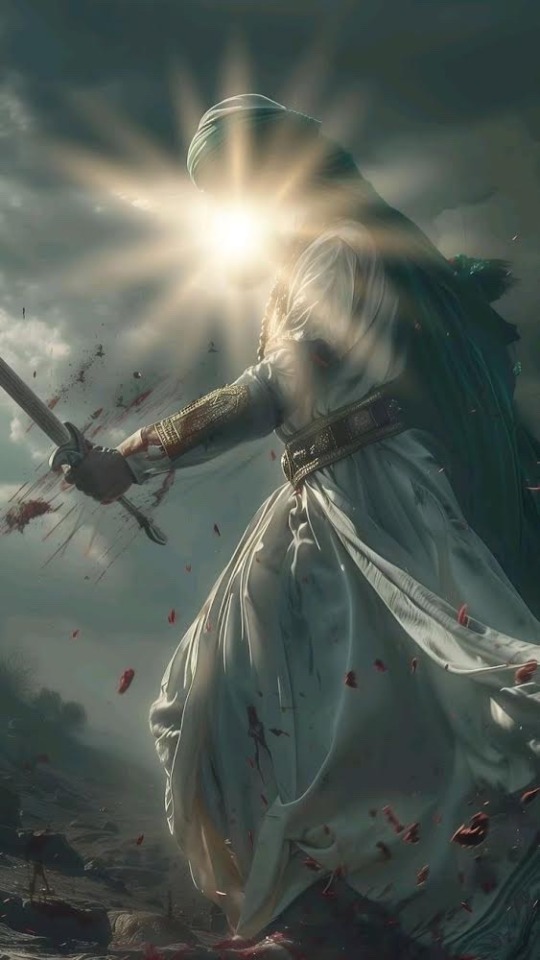
2 notes
·
View notes
Text
Top International Schools in Khammam: SARVAGNYA - for a Bright Future
Finding the best school in Khammam for your child can be a challenging yet exciting journey. Whether you're seeking a top international school in Khammam, a state board school in Khammam, or the best high school in Khammam, the city offers a wide range of excellent educational institutions catering to diverse needs. In this post, we explore the top schools in Khammam, offering world-class education from primary to high school level.
Best Schools in Khammam: Education for Excellence
Khammam is home to some of the finest schools, providing an exceptional academic foundation along with a well-rounded education. Whether you are looking for a top school for your young child or searching for a best high school for secondary education, Khammam offers various options. These schools emphasize both academics and extracurricular activities, preparing students for future success.
Top International Schools in Khammam
For families who want their child to have a global perspective, the best international schools in Khammam follow international curricula such as the Cambridge or IB systems. These schools offer a modern, globalized approach to education, providing students with a competitive edge for higher education opportunities worldwide. With dedicated facilities and innovative teaching methods, international schools in Khammam offer students an enriching learning experience.
Best State Board Schools in Khammam
If you are looking for a state board school in Khammam, there are several excellent options available. These schools follow the Telangana State Board curriculum, ensuring a strong academic foundation in subjects like Mathematics, Science, and Social Studies. Top state board schools in Khammam focus on delivering quality education while incorporating extracurricular programs that help students grow in all aspects of life.
Top Primary Schools in Khammam
The foundation years of education are crucial, and top primary schools in Khammam focus on building strong skills in young students. These schools offer a nurturing environment where children develop their literacy, numeracy, and social skills. Parents seeking the best primary school in Khammam can find institutions that prioritize individual attention and a curriculum that supports early childhood development.
Best High Schools in Khammam
As children progress to secondary education, high schools in Khammam play a vital role in preparing students for their future. The best high schools in the city provide a rigorous academic environment, preparing students for board exams while also offering diverse extracurricular activities. Whether your child is interested in sports, arts, or leadership roles, the top high schools in Khammam offer opportunities for overall growth.
Top 10 Schools in Khammam
Khammam boasts some of the top 10 schools in the region, known for their academic excellence, modern facilities, and well-rounded approach to education. These schools stand out for their consistent performance, and many offers specialized programs in both academics and extracurricular activities. Whether you're looking for a top state board school in Khammam or a best high school, these institutions lead the way in providing a holistic education.
Best Day Schools in Khammam
If you're looking for a best day school in Khammam, there are numerous reputable options that combine academic rigor with a balanced approach to student life. Day schools in Khammam offer flexibility for families while providing a comprehensive education that includes extracurricular activities and social development.
Final Thoughts
Choosing the right school is one of the most important decisions you'll make for your child’s future. With so many great options available, finding the best school in Khammam that fits your child's needs is essential. Whether you are seeking a top international school, state board school, or best high school, Khammam has a variety of schools that provide excellent education and a nurturing environment.

Conclusion
The top schools in Khammam offer a rich blend of academic excellence and extracurricular opportunities for students of all ages. From international schools with global curriculums to state board schools offering solid academic foundations, you are sure to find the right fit for your child. Be sure to explore these institutions, ensuring that your child gets the best education possible in Khammam.
Visit: https://www.sarvagnyaschool.com/
Follow: https://www.instagram.com/sarvagnya_the_new_gen_school
Contact:
VDO’s Colony, Road №1, Wyra Road, Khammam, Telangana, PIN:507001.
Call: 9885590100
4 notes
·
View notes
Text
Maths + Vidya = Your Fear Solved!
Start today and see the difference!
#VidyaKnowsBest #LearningForLife
#education#school#online learning#study motivation#study#academic success#funny videos#a level maths#funny#funny memes#funny post#funny stuff#igcse#cambridge#ibdp student#a level biology#meme#tumblr memes#humor#lol#haha#educationforall#higher education#teaching#schools#career#learning#online tutoring#online classes#online tuition
7 notes
·
View notes
Text
Bachelor Degree in finance Online
Build a Successful Career with a Bachelor Degree in Finance and Accounting

A Bachelor Degree in Finance or a Financial Degree serves as the foundation for a rewarding and lucrative career in the financial world. This degree is designed to equip students with essential knowledge, practical skills, and the expertise needed to excel in diverse sectors, from banking to corporate finance. Aspiring financial professionals find these programs indispensable for building a strong academic and professional base.

** Where Ambitions Take Flights
Earn a Financial Degree From Top-Ranked Universities
Click Below To Get More Info
Bachelor Degree in Finance and Accounting – Study from AnywhereExplore Top Bachelor Degree Programs in Finance and AccountingBuild a Successful Career with a Bachelor Degree in Finance and AccountingOnline Bachelor Degree in Finance and Accounting – Start AnytimeBachelor Degree in Finance and Accounting – Your Career Starts HereEarn a Bachelor Degree in Finance and Accounting TodayUnlock Your Potential with a Bachelor Degree in Finance and Accounting
What is a Bachelor Degree in Finance?
A Bachelor Degree in Finance focuses on teaching students how to manage, analyze, and optimize financial resources. The curriculum is designed to cover a wide array of critical topics, including:
Corporate Finance: Examining how companies handle their financial operations.
Financial Markets: Understanding the mechanisms of global markets and trading systems.
Risk Management: Learning strategies to identify and mitigate financial risks.
Investment Analysis: Developing the expertise to make well-informed decisions about investments.
Financial Planning: Mastering techniques for personal and corporate financial planning.
Graduates with a Financial Degree are well-prepared for positions in various industries, including real estate, investment banking, financial consultancy, and insurance.
Why Pursue a Bachelor Degree in Finance?
Earning a Bachelor’s Degree in Finance is a valuable investment in your future.
Here are a few convincing reasons why this is a wise decision:
High Demand for Financial Professionals
Financial experts are always in demand across industries, making this degree one of the most stable career paths.
Lucrative Salaries
The financial sector offers some of the highest-paying jobs, with opportunities for rapid advancement.
Versatility in Career Opportunities
Graduates can explore careers in banking, investment management, corporate finance, and even entrepreneurship.
Global Relevance
The skills and knowledge acquired are applicable worldwide, opening doors to international career opportunities.
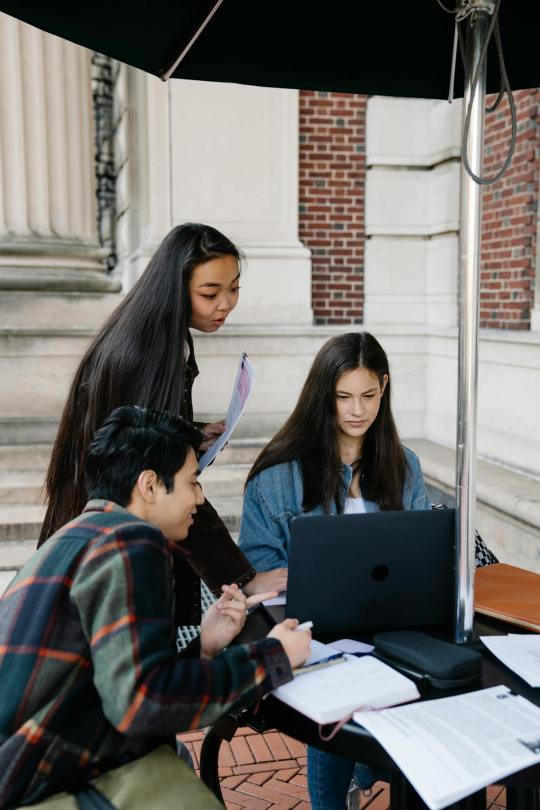
Top Institutions Offering Bachelor Degrees in Finance and Accounting
1. Wharton School of the University of Pennsylvania
Renowned globally, Wharton offers an outstanding Bachelor Degree in Finance that emphasizes practical applications and cutting-edge financial theories.
Highlights:
Access to internships with global financial giants.
A curriculum tailored to modern financial challenges.
A robust network of successful alumni.
2. Institute of Technology, Massachusetts (MIT Sloan Management School)
MIT Sloan’s program is perfect for those interested in combining finance with technology.
Highlights:
Courses on emerging trends like blockchain and fintech.
Strong focus on research and innovation.
Collaborative learning environment.
3. London School of Economics (LSE)LSE is a leading institution for students seeking a Bachelor Degree in Finance with an international perspective.Highlights:
Strong connections with global financial markets.
Emphasis on quantitative and analytical skills.
A diverse and inclusive student community.
4. University of Chicago Booth School of Business
Highlights:
Interdisciplinary approach combining finance and economics.
Opportunities for hands-on projects.
Renowned faculty with industry experience.
5. University of Cambridge Judge Business School
The Judge Business School focuses on equipping students with a strong ethical foundation in finance.
Highlights:
Exposure to global financial practices.
Networking opportunities with industry leaders.
Comprehensive curriculum covering finance and accounting.
Core Subjects in a Bachelor Degree in Finance
Most programs include the following essential courses to ensure students gain a well-rounded education:
Financial Accounting: Analyzing financial statements and learning reporting techniques.
Econometrics: Utilizing statistical methods for financial data analysis.
Corporate Governance: Exploring ethical and strategic financial decision-making.
Portfolio Management: Learning how to optimize investments for maximum returns.
Derivatives and Fixed Income: Understanding complex financial instruments.
Career Opportunities with a Financial Degree
A Bachelor Degree in Finance unlocks numerous high-paying career paths.
Here are some prominent roles:
Financial Analyst
Utilize data to assist businesses in making well-informed financial choices.
Investment Banker
Assist organizations in raising capital through stock issuance and mergers.
Portfolio Manager
Manage and grow investment portfolios for clients or organizations.
Risk Manager
Develop strategies to minimize financial risks and safeguard assets.
Corporate Finance Advisor
Provide insights on optimizing a company’s financial performance.
2 notes
·
View notes
Text
𝐇𝐚𝐯𝐞 𝐲𝐨𝐮 𝐡𝐞𝐚𝐫𝐝 𝐨𝐟 𝐚 𝐂𝐨𝐦𝐦𝐨𝐧𝐩𝐥𝐚𝐜𝐞 𝐁𝐨𝐨𝐤?
I have always tried to maintain a journal with no success. Just the fact that it had to be perfect, consistent, long, and allot time to it with life's whirlwinds, it was just overwhelming and I procrastinated it. I have also seen that it happens with a lot of people. I felt like I needed something with less curation, less prompts and more dumping of my thoughts carelessly as a true picture of what thoughts ran through my head.
That's when I found the concept of a commonplace book.
According to the paper kind, a commonplace book is "a tool to record and digest information''. They have a long history, going as far as the 16th century. They can be used as a way to store things to remember, whether academic or memories. Back in the day, it was a must for education, to the point that Oxford and Cambridge taught students about them. It can come useful when you need to record information for research, but generally you kinda mix up journal entries, pictures, drawings, reminders, and topics you research
It is behind that concept that I create this blog, where I combined all my passions and memories into one place. Taking a sprinkle of the academia aesthetic and an influence of the renaissance era with the love for learning, I invite you to follow along this commonplace blog.
Thank you for reading! ⸜(。˃ ᵕ ˂ )⸝♡
#art#inspiration#inspo#lifestyle#student life#high school#love#aesthetic#academia#dark acadamia aesthetic#dark acamedia#chaotic academia#chaotic academic aesthetic#tumblr stuff#blog#first post#studyblr#motivation#vibes#good vibes#positive thoughts#journal#journaling#diary#dear diary#journal entry
3 notes
·
View notes